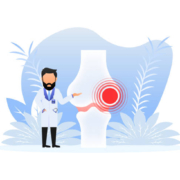Nosebleeds can be frightening for parents and kids alike. While they may look scary, they’re often harmless in children. However, there are times when a nosebleed might indicate a more serious problem. This information will help you understand the difference between a typical nosebleed and one that needs a doctor’s attention.
Why Do Kids Get Nosebleeds?
Nosebleeds, medically called epistaxis, happen when tiny blood vessels inside the nose break and bleed. Since these vessels are especially fragile in children, nosebleeds are more common during their younger years. Here’s a look at the usual culprits:
- Dry Air: Especially in winter, dry air can dry out the nose and irritate those delicate blood vessels, making them more likely to burst.
- Itchy Fingers: Young children are naturally curious and explore with their hands, including their noses. Picking can irritate and damage the blood vessels, leading to a nosebleed.
- Allergy Attack: Seasonal allergies can inflame and irritate the inside of the nose, increasing the risk of bleeding.
- Something Stuck Up There: If a small object gets lodged in a child’s nose, it can irritate the lining and cause a bloody nose.
- Bump on the Nose: A blow to the face during play or a fall can injure the blood vessels in the nose, leading to a nosebleed.
An ENT specialist stresses the importance of understanding the cause: “While most nosebleeds in children are minor and manageable at home, knowing the reason helps decide the best course of action.
Tips to Stop Your Child’s Nosebleed
When your child has a nosebleed, staying calm and taking action can quickly stop the bleeding. Here’s what to do:
- Sit Up Straight: Have your child sit comfortably and lean forward slightly. This prevents blood from going down the back of the throat, which can cause nausea.
- Pinch the Nose: Using your thumb and index finger, firmly pinch the soft part of your child’s nose, just below the bony bridge. Hold constant pressure for 10-15 minutes. Don’t let go to check if the bleeding has stopped.
- Cool Compress: Place a cool compress or ice pack wrapped in a thin cloth on the bridge of your child’s nose. The cold helps narrow the blood vessels and slow bleeding.
- Stay Calm: A calm environment keeps your child relaxed and prevents straining, which can make the bleeding worse.
When to Worry About a Nosebleed in a Child?
Most nosebleeds are nothing to worry about. However, there are times when seeking medical attention is important for your child’s health. Here’s what to watch for:
- Persistent Bleeding: If the nosebleed continues for more than 15-20 minutes of applied pressure, don’t hesitate to call your doctor or head to the nearest emergency department.
- Frequent Nosebleeds: If your child has frequent nosebleeds, happening more than two or three times a week, consult a doctor to explore potential underlying causes.
- Fever and Nosebleed: A nosebleed accompanied by a fever can signal an infection or another underlying issue. It’s best to get a medical evaluation.
- Facial Injury and Nosebleed: If your child has a nosebleed after a blow to the face, especially if their face is swollen or deformed, seek medical attention to rule out a broken nose or other injuries.
- Blood in Vomit or Stool: If your child has blood in their vomit or stool after a nosebleed, they might have swallowed a significant amount of blood. Consult a doctor to check for any internal bleeding.
When to See an ENT Specialist for Your Child’s Nosebleeds?
If your child often has nosebleeds that are strong or happen with other worrying signs, it’s smart to see a specialist called an Ear, Nose, and Throat (ENT) doctor. Here’s what they can do:
- Check thoroughly: They’ll look closely at your child’s nose and inside it, and might do tests like scans to find out why the nosebleeds are happening.
- Suggest treatments: Depending on what’s causing the nosebleeds, they might suggest things like sealing the bleeding spot with a small electric pulse, putting gauze in the nose to stop the bleeding, or giving medicines.
- Prevent future nosebleeds: The ENT doctor can help you figure out ways to make nosebleeds happen less often or be less serious. This might include using a machine to add moisture to the air, spraying saltwater into the nose, or managing allergies with medicine.
Even though nosebleeds in kids are usually not a big deal, parents need to know when to get help. By recognizing signs of a more serious problem and getting the right help, parents can keep their kids safe. Seeing a skilled ENT doctor at Ayushman Hospital & Health Services, Dwarka Sector-10 ensures that nosebleeds in children are diagnosed and treated correctly, giving parents peace of mind and the best care for their kids.












